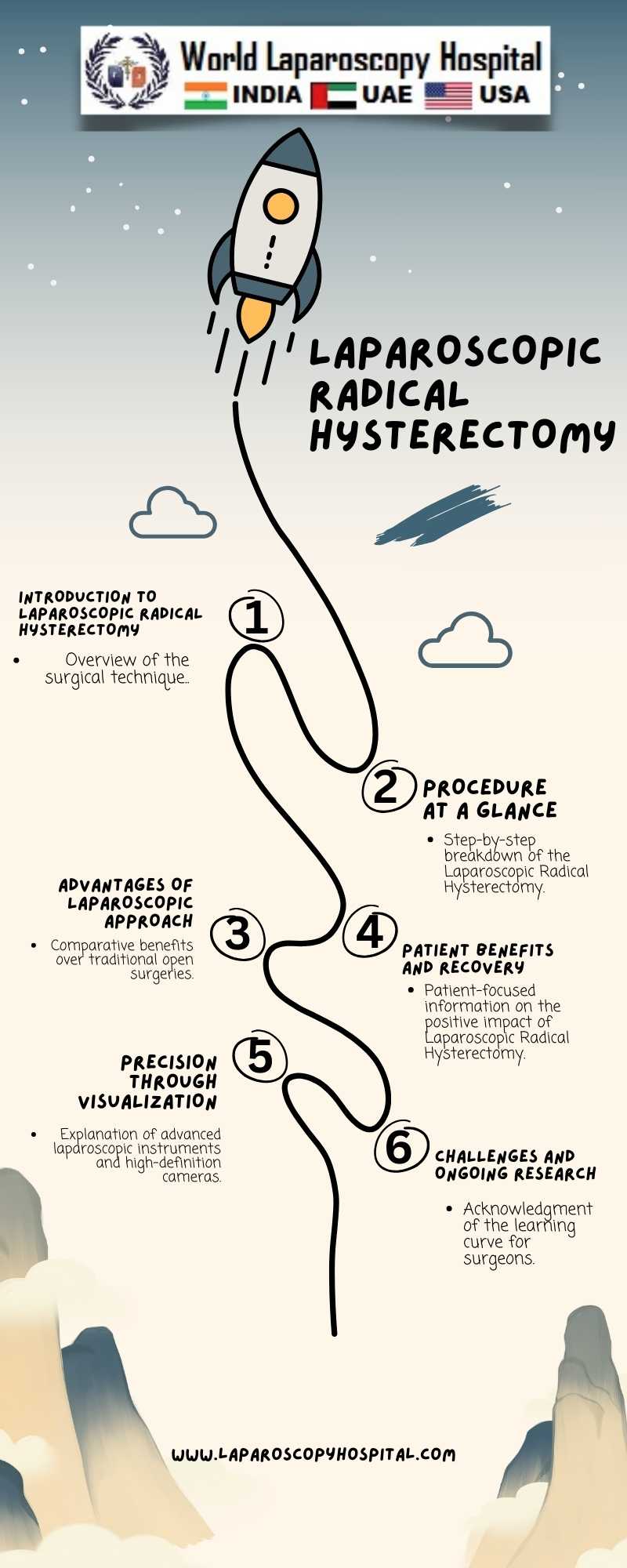
The Evolution of Laparoscopic Radical Hysterectomy
Embracing Minimally Invasive Techniques
Laparoscopic Radical Hysterectomy represents a significant leap forward in gynecologic surgery. Traditionally, radical hysterectomy involved an open abdominal approach, leading to longer recovery times and increased postoperative discomfort. However, with the advent of laparoscopic techniques, surgeons can now perform complex procedures with smaller incisions, reducing patient trauma and enhancing overall outcomes.
Precision and Visualization
One of the key advantages of Laparoscopic Radical Hysterectomy is the enhanced visualization it provides. Surgeons utilize advanced laparoscopic instruments equipped with high-definition cameras, offering a detailed and magnified view of the surgical site. This precision allows for meticulous dissection and removal of tissues, ensuring a thorough and effective procedure.
Benefits for Patients
Reduced Recovery Time
Compared to traditional open surgeries, laparoscopic approaches typically result in shorter hospital stays and quicker recovery times. Patients undergoing Laparoscopic Radical Hysterectomy often experience less pain and are able to resume their daily activities sooner, contributing to an overall improved quality of life post-surgery.
Minimal Scarring
The smaller incisions used in laparoscopic procedures result in minimal scarring, addressing both cosmetic and physical concerns. This is particularly significant for patients who value the aesthetic aspects of their recovery and wish to avoid prominent scars.
Challenges and Ongoing Research
Skill Acquisition and Learning Curve
While the benefits of Laparoscopic Radical Hysterectomy are evident, mastering the technique requires a learning curve for surgeons. Skill acquisition and training programs play a crucial role in ensuring that surgeons can proficiently perform these procedures, maintaining high standards of patient care.
Research in Robotics
The integration of robotics into gynecologic surgery is an area of ongoing research. Robotic-assisted Laparoscopic Radical Hysterectomy offers the potential for even greater precision and dexterity, opening new avenues for the advancement of minimally invasive techniques.
Conclusion
Advancements in Laparoscopic Radical Hysterectomy underscore the dynamic nature of surgical innovation. This approach not only addresses the medical needs of patients but also reflects a commitment to improving surgical outcomes and enhancing the overall patient experience. As technology continues to evolve, the future holds exciting possibilities for further refining and expanding the scope of Laparoscopic Radical Hysterectomy in the realm of gynecologic surgery.